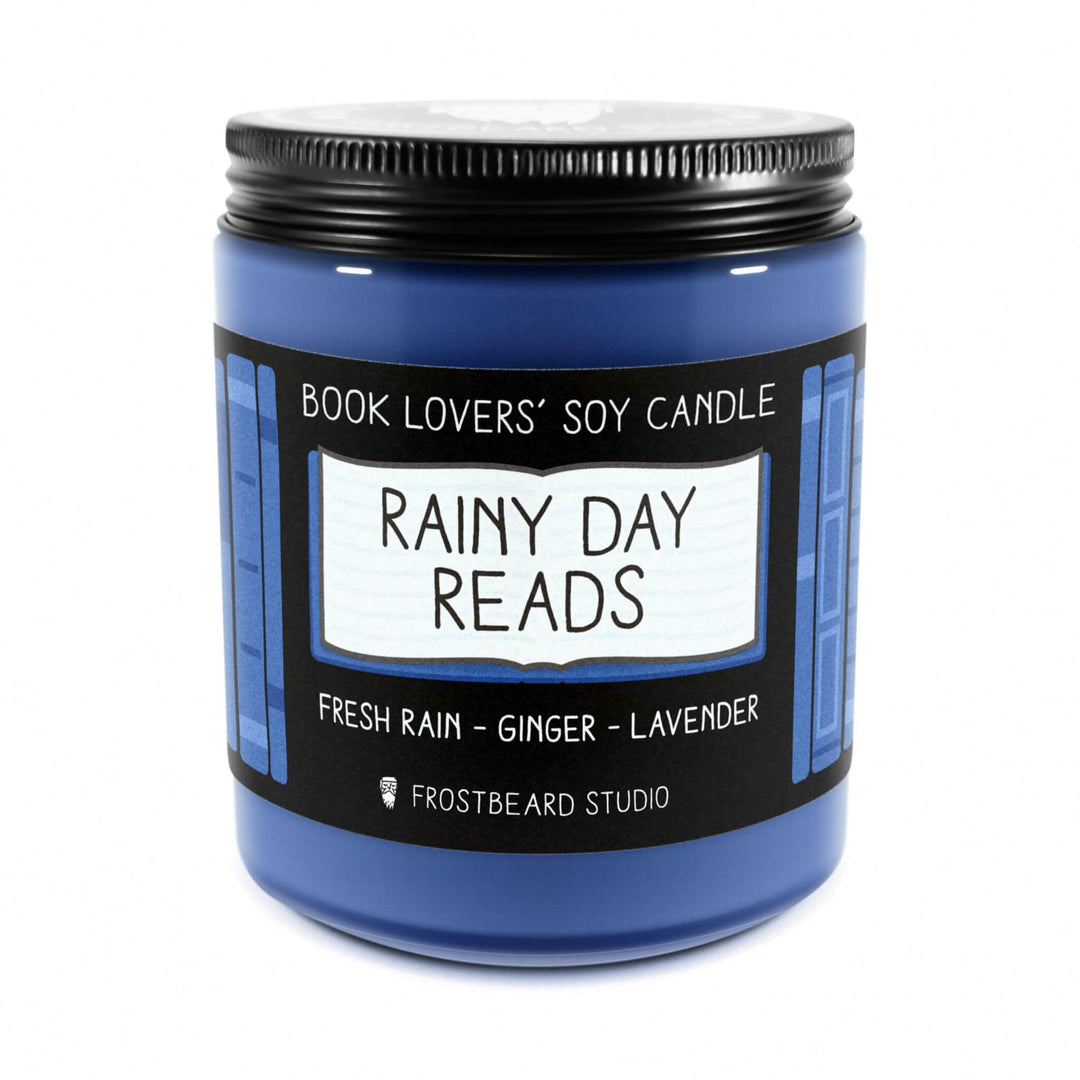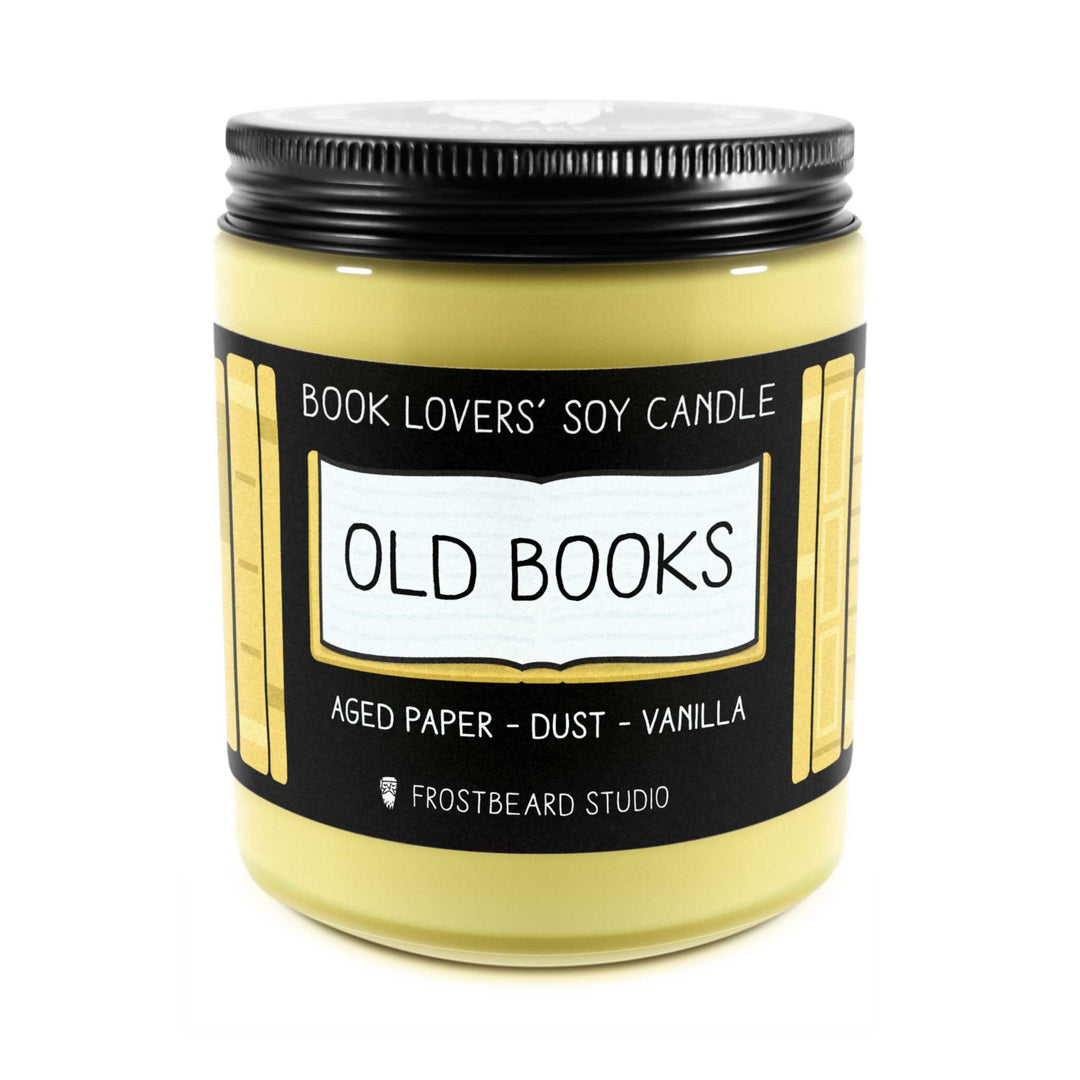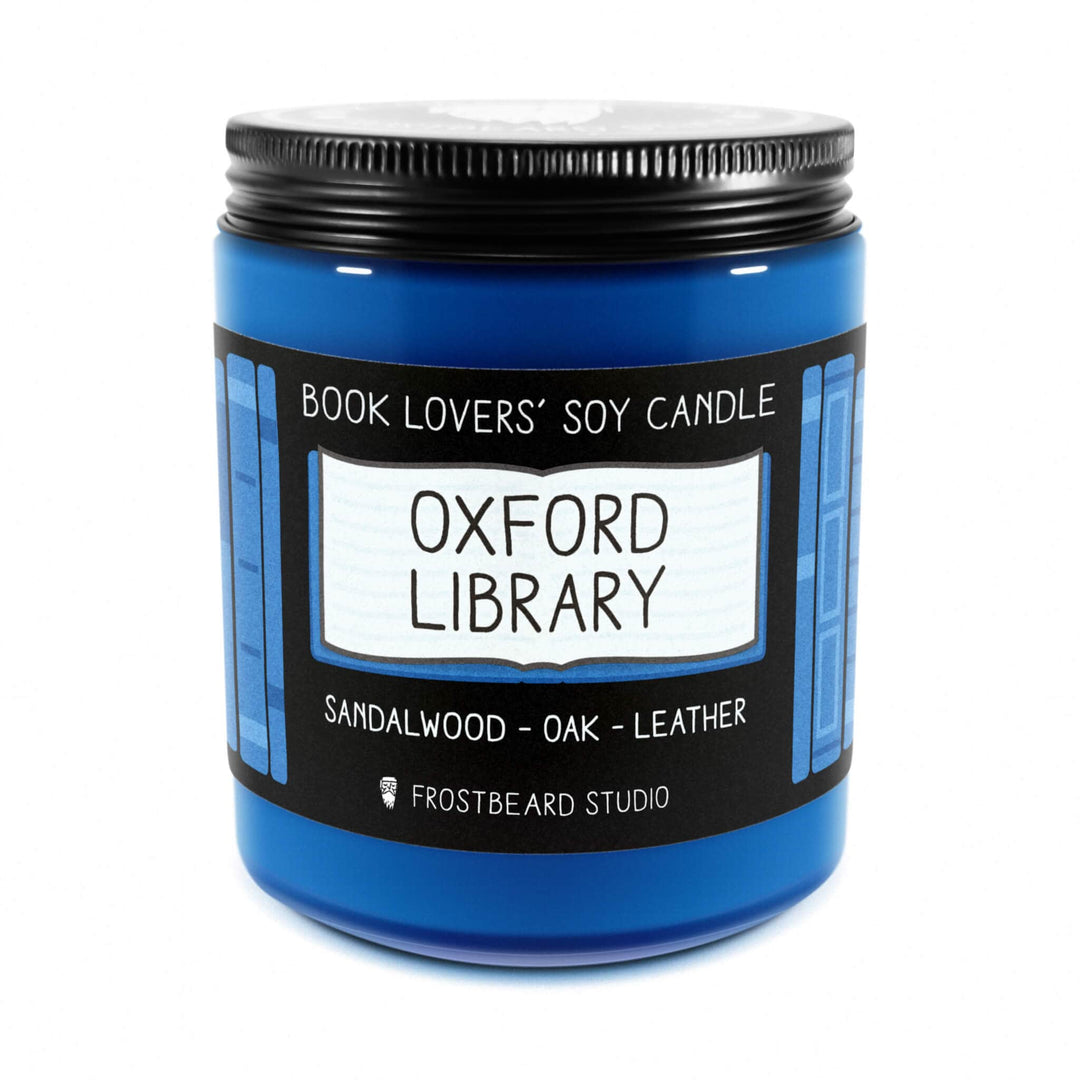The Aromatic Allure of Old Books: A Deep Dive
Uncovering the Magic of Old Book Smell
The old book smell is something all book lovers know. It’s a unique scent that brings nostalgia and a sense of comfort, often called bibliosmia.
- What is old book smell? It’s the result of chemical reactions as books age.
- Why do people love it? It evokes memories, offering a sensory reminder of past reading experiences.
The journey of books from cotton-based paper to wood pulp and finally to acid-free materials has shaped how they smell today. This article explores why the old book smell fascinates us and how it’s tied to our emotions and memories.
I’ve spent years studying the science of book scents, and as the co-founder of Frostbeard Studio, we’ve created candles that capture these beloved fragrances to improve your reading experience.

What Causes the Old Book Smell?
The old book smell is a fascinating blend of chemistry and nostalgia. But what exactly causes this scent that so many of us find irresistible?
Chemical Breakdown
Books are made mostly of paper, which is derived from plants. Over time, the materials in books break down through a process called chemical decomposition. This breakdown releases various compounds into the air, creating the distinct smell we associate with old books.
Volatile Organic Compounds (VOCs)
As books age, they emit volatile organic compounds (VOCs). These are tiny particles that evaporate easily and contribute to the unique scent. Different VOCs are responsible for different parts of the smell.
Lignin
One of the main culprits behind the old book smell is lignin. Lignin is a polymer found in plants that helps bind cellulose fibers together. When paper is made from wood pulp, it contains a lot of lignin. Over time, lignin breaks down and produces acids that degrade the paper, releasing a variety of VOCs in the process.

Vanillin, Toluene, and Furfural
Several specific compounds contribute to the old book smell:
- Vanillin: This compound gives vanilla its scent and is released as lignin breaks down. It adds a sweet, slightly woody note to the smell of old books.
- Toluene: Often found in adhesives and solvents, toluene adds a chemical, almost gasoline-like aroma.
- Furfural: This compound smells like almonds and is produced when the cellulose in paper degrades.
Each of these compounds adds a layer to the complex scent profile of an old book, making it more than just a musty odor.
The Role of Time
The age of the book also plays a significant role. Older books, especially those printed before 1845, were made from cotton and linen rags. These materials contain more stable cellulose and less lignin, meaning they degrade more slowly and release different VOCs compared to modern paper made from wood pulp.
Modern Books
Since around 1970, many books have been printed on acid-free paper, which contains less lignin. These books degrade more slowly and don't produce the same intense old book smell as their older counterparts. However, even acid-free paper will eventually break down, releasing its own set of VOCs over time.
Understanding the chemistry behind the old book smell helps us appreciate why this scent is so evocative and cherished. It's a blend of history, science, and a touch of magic that transports us back to different times and places.
Next, we'll explore why people love the smell of old books so much and how it connects to our emotions and memories.
The Science Behind Old Book Smell
The old book smell isn't just a nostalgic whiff; it's a fascinating chemical journey. Let's explore the science behind this beloved scent.
Acid Hydrolysis
The process of acid hydrolysis plays a key role in the aging of books. As books get older, the acids in the paper start breaking down the cellulose and lignin. This breakdown releases various compounds that contribute to the scent we love.
Cellulose and Lignin
Cellulose and lignin are the main components of paper. Cellulose is a complex carbohydrate that gives paper its structure, while lignin is a polymer that binds cellulose fibers together. Over time, lignin breaks down through acid hydrolysis, releasing a mixture of volatile organic compounds (VOCs).
VOC Analysis
Volatile Organic Compounds (VOCs) are the tiny particles responsible for the distinct smell of old books. When lignin and cellulose decompose, they release VOCs into the air. Each VOC adds a unique note to the overall scent.
Researchers like Strlič et al. have used VOC analysis to study these compounds. By examining the VOCs released from old books, they can identify the specific chemicals involved and understand the degradation processes at work.
Material Degradomics
The field of material degradomics focuses on understanding how materials like paper degrade over time. By studying the VOCs emitted from old books, scientists can pinpoint the chemical reactions taking place. This helps preservationists take steps to slow down or reverse the degradation process.
Key Compounds
Several specific compounds contribute to the old book smell:
- Vanillin: Adds a sweet, vanilla-like scent.
- Toluene: Provides a chemical, almost gasoline-like aroma.
- Furfural: Smells like almonds and is produced when cellulose degrades.
The Role of Time
The age of the book significantly impacts its smell. Older books, especially those made before 1845, were crafted from cotton and linen rags, which contain more stable cellulose and less lignin. These materials degrade more slowly, releasing different VOCs compared to modern paper.
Modern Books
Since around 1970, many books have been printed on acid-free paper, which contains less lignin. These books degrade more slowly and don't produce the same intense old book smell as their older counterparts. However, even acid-free paper will eventually break down, releasing its own set of VOCs over time.
Understanding the science behind the old book smell adds a layer of appreciation for this cherished scent. It's a blend of chemistry, history, and a touch of magic that transports us back to different times and places.
Next, we'll explore why people love the smell of old books so much and how it connects to our emotions and memories.
Why Do People Love the Smell of Old Books?
The old book smell is more than just a pleasant aroma; it's a powerful sensory experience that connects us to our past and stirs deep emotions. Let's explore why this scent holds such a special place in our hearts.
Nostalgia
For many, the smell of old books is a direct line to cherished memories. Whether it's the scent of a beloved childhood library or the aroma of a grandparent's bookshelf, this smell can transport us back to simpler times.
Marcel Proust famously described this phenomenon as the "Proust effect," where certain smells trigger vivid memories and emotions. The scent of old books often brings back moments of peace, holidays, or quiet afternoons spent reading.
Memory-Jogging
Our sense of smell is closely linked to our memory centers in the brain. When we encounter the old book smell, it can jog our memory and bring back specific feelings, thoughts, or ideas.
This connection between smell and memory is scientifically proven. The olfactory system has a direct pathway to the brain's memory and emotion centers, making scents powerful triggers for recalling past experiences.
Sensory Experience
The old book smell is a complex blend of various compounds. When we inhale this scent, it engages our senses and creates a rich, multi-layered experience.
Ray Bradbury, the American author, believed that the smell of books improves the pleasure of reading. For him, books smelled like cinnamon and vanilla, adding an extra layer of enjoyment to the act of reading.
Emotional Connection
The emotional connection we feel with the old book smell is profound. This scent often evokes feelings of comfort, relaxation, and happiness. It's a reminder of the joy of finding new stories and the comfort of familiar tales.
When we open a book, the anticipation of the reading experience is heightened by its smell. This creates a positive association in our brains, conditioning us to connect the smell of books with feelings of well-being.
The old book smell is a powerful blend of nostalgia, memory, sensory delight, and emotional connection. It’s no wonder that so many people are drawn to this enchanting scent.
Next, we'll explore how to get rid of unwanted old book smells that aren't so pleasant.
How to Get Rid of Unwanted Old Book Smell
While the old book smell is a treasure for many, sometimes it can be a bit too much, especially if it's tainted with mustiness, smoke, or mildew. Here are some effective methods to freshen up your beloved books:
Airtight Container and Baking Soda
One of the most popular methods to remove musty odors is to place your dry books in an airtight container with an open box of baking soda. Baking soda is a natural deodorizer that absorbs unwanted smells. Leave them together for about a week to see noticeable results.
Fresh Air
Sometimes, a bit of fresh air is all your books need. Place your books in a well-ventilated area, preferably outdoors but not in direct sunlight, to help dissipate the musty smell. A few hours to a day of airing out can make a significant difference.
Kitty Litter
Clean, unscented kitty litter can also work wonders. Similar to baking soda, kitty litter absorbs moisture and odors. Place your books in a container with a layer of kitty litter at the bottom. Ensure the books are not in direct contact with the litter by using a perforated tray or mesh. Seal the container and leave it for a few days.
Deodorizers
For mildew smells, using closet deodorizers can be effective. Place your books in a bin with these deodorizers, and let them sit for a while. Replace the deodorizers as needed until the smell is gone. For more stubborn cases, combining deodorizers with baking soda can improve the effect.
Paper Towels and Freezer
For smoke odors, try interleaving the pages with paper towels to absorb the smell. You can also place the books in the freezer. Freezing can help neutralize odors and kill any mold spores that might be causing the smell.
By using these methods, you can enjoy the old book smell you love without the unwanted mustiness, smoke, or mildew.
Frequently Asked Questions about Old Book Smell
What is the Smell of Old Books Called?
The smell of old books is officially known as bibliosmia. This term captures the nostalgic aroma that many book lovers cherish. It's a unique scent that can transport you back in time, evoking memories of libraries, bookstores, and cherished reading moments.
What Causes the Old Book Smell?
The old book smell is caused by the chemical decomposition of the materials used in book production. Over time, the organic compounds in paper, ink, and adhesive break down, releasing volatile organic compounds (VOCs). The primary contributors to this smell include:
- Lignin: Found in paper, lignin breaks down to produce vanillin, giving off a sweet, vanilla-like scent.
- Vanillin: This compound is responsible for the vanilla aroma we often associate with old books.
- Toluene: Adds sweet, aromatic notes.
- Furfural: Contributes almond and coffee-like overtones.
These compounds create the complex and beloved scent profile of old books.
How to Get Rid of Old Book Smell?
While the old book smell can be delightful, sometimes it can be too strong or unpleasant, especially if it includes musty or smoky odors. Here are some effective methods to get rid of unwanted old book smells:
- Airtight Container with Baking Soda: Place the book in an airtight container with an open box of baking soda. Leave it for about a week to absorb the odors.
- Fresh Air: Sometimes, simply airing out the book in a well-ventilated area can help dissipate the smell.
- Kitty Litter: Place the book in a sealed container with clean kitty litter, which can absorb the odors.
- Deodorizers: Use closet deodorizers or dryer sheets in a sealed container with the book to neutralize the smell.
By using these methods, you can enjoy your old books without the overpowering odors.
Next, let's explore the scientific reasons behind why people love the smell of old books so much.
Conclusion
At Frostbeard Studio, we understand the deep emotional connection that book lovers have with the old book smell. It's not just a scent; it's a doorway to cherished memories and immersive reading experiences. Our book lovers' soy candles are designed to capture this nostalgic aroma, enhancing your reading journey in a unique way.
Imagine curling up with your favorite mystery novel while a candle infused with the scent of aged paper, dust, and vanilla burns nearby. This sensory addition can make the plot twists and character encounters even more vivid and enchanting.
Our candles are crafted with high-quality materials, including 100% soy wax and premium fragrance oils. They are eco-friendly, hand-poured, and come in various sizes to suit your needs. Plus, our commitment to sustainability means you can enjoy these fragrances guilt-free, knowing that each product is responsibly made and shipped with carbon-neutral deliveries.
Improve your reading experience with our book lovers' soy candles. Let the aromatic allure of old books transform your reading moments into unforgettable sensory trips.
Happy reading!








